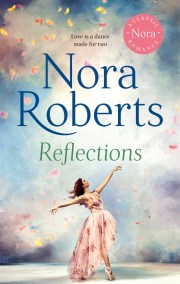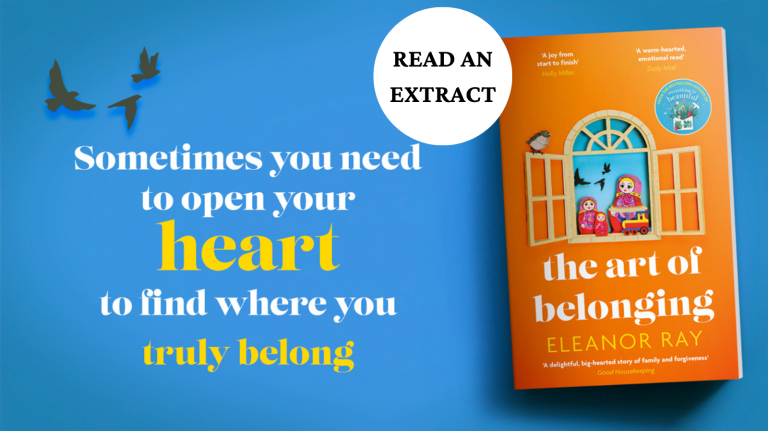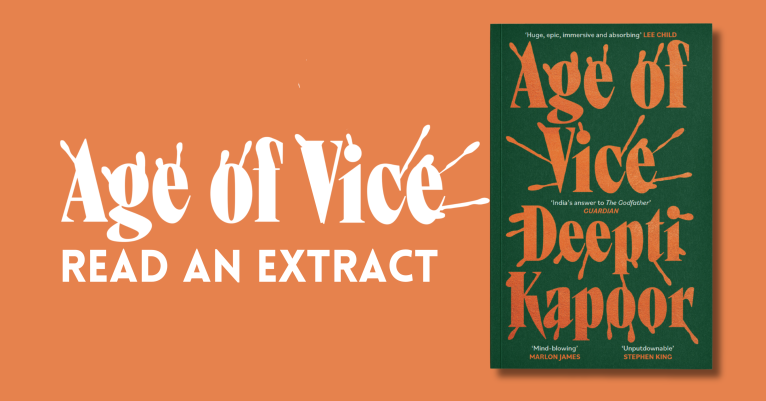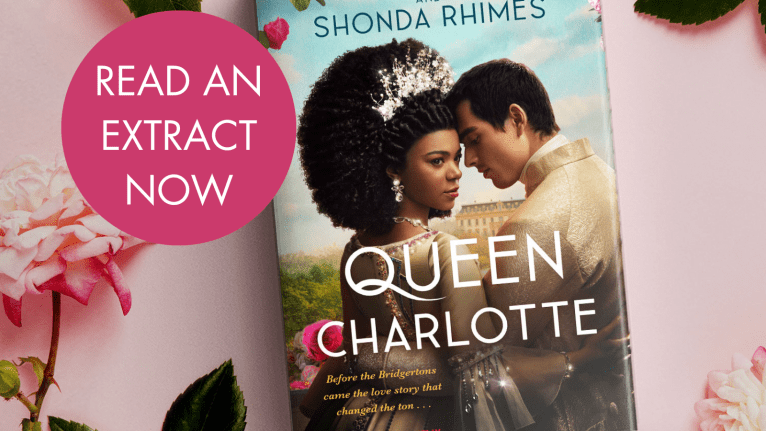Read an extract from Reflections by Nora Roberts
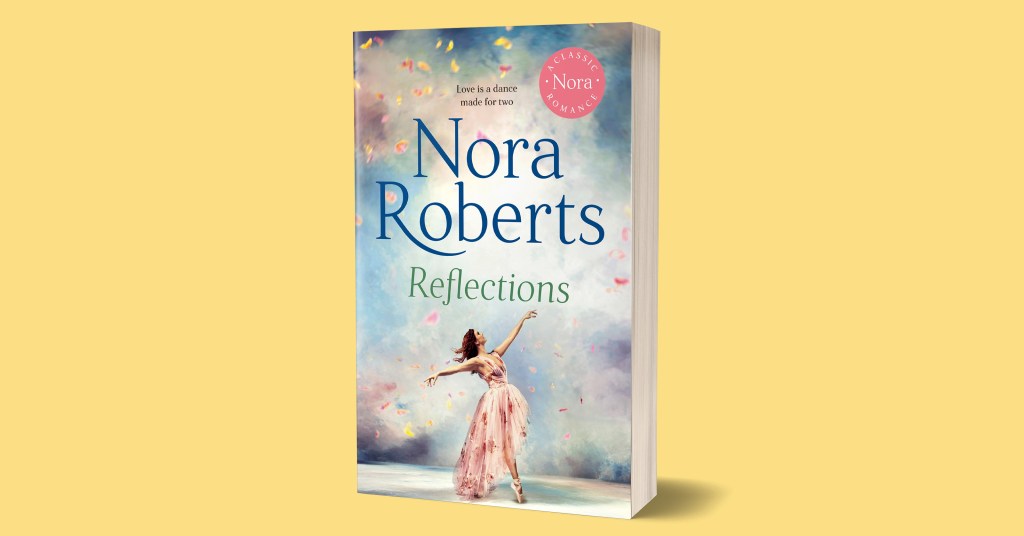
Chapter 1
The wind had cooled the air. It blew dark clouds across the sky and whistled through the leaves, now hinting at fall. Along the roadside the trees appeared more yellow than green, and touches of flame and scarlet were beginning to show. The day was poised in September, just as summer was turning autumn. The late afternoon sunshine squeezed between the clouds, slanting onto the roadway.
The air smelled of rain. Lindsay walked swiftly, knowing the clouds could win out at any moment. The breeze lifted and tossed the strands of her silvery blond hair, and she pushed at them with annoyance. She would have been wiser to have left it neatly pinned at the nape of her neck, she thought. Had she not been so pressed for time, Lindsay would have enjoyed the walk. She would have reveled at the hint of fall and the threatening storm. Now, however, she hurried along the roadway wondering what else could go wrong.
In the three years since she had returned to Connecticut to teach, she had experienced some rough moments. But this, she decided, was among the top ten for frustration value. Backed up plumbing in the studio, a forty-five minute lecture from an overeager parent on her child’s prowess, two torn costumes and a student with an upset stomach—these minor annoyances had culminated with her temperamental car. It had coughed and moaned as usual when she had turned the ignition, but then it had failed to pull itself together. It simply had sat there shuddering until Lindsay had admitted defeat. This car, she thought with a rueful smile, is about as old as I am, and we’re both tired.
After taking a hopeless look under the hood, Lindsay had gritted her teeth and begun the two-and-a-half-mile hike home from the studio. Of course, she admitted as she trudged along under the shifting sunlight, she could have called someone. She sighed, knowing her temper had set her off. Ten minutes of brisk walking had cooled it. Nerves, she told herself. I’m just nervous about the recital tonight. Not the recital, technically, she corrected, stuffing her hands into her pockets. The girls are ready; rehearsals had been perfect. The little ones are cute enough that mistakes won’t matter. It was the times before and after the recitals that distressed Lindsay. And the parents.
She knew that some would be dissatisfied with their children’s parts. And more still who would try to pressure her into accelerating the training. Why wasn’t their Pavlova on pointe yet? Why did Mrs. Jones’s ballerina have a bigger part than Mrs. Smith’s? Shouldn’t Sue move on to the intermediate class?
So often Lindsay’s explanations on anatomy, growing bones, endurance and timing met with only more suggestions. Normally, she used a mixture of flattery, stubbornness and intimidation to hold them off. She prided herself on being able to handle overzealous parents. After all, she mused, hadn’t her mother been exactly the same?
Above all else, Mae Dunne had wanted to see her daughter on stage. She herself was short-legged, with a small, compact body. But she had possessed the soul of a dancer. Through sheer determination and training, she had secured a place in the corps de ballet with a small touring company.
Mae had been nearly thirty when she married. Resigned that she would never be a principal dancer, she had turned to teaching for a short time, but her own frustrations made her a poor instructor. Lindsay’s birth had altered everything. She could never be a prima ballerina, but her daughter would. Lessons for Lindsay had begun at age five with Mae in constant attendance. From that time on, her life had been a flurry of lessons, recitals, ballet shoes and classical music. Her diet had been scrupulously monitored, her height agonized over until it was certain that five-feet-two was all she would achieve. Mae had been pleased. Toe shoes add six inches to a dancer’s height, and a tall ballerina has a more difficult time finding partners.
Lindsay had inherited her mother’s height, but to Mae’s pride, her body was slender and delicate. After a brief, awkward stage, Lindsay had emerged as a teenager with fawnlike beauty: fragile blond hair, ivory skin, and Viking blue eyes with brows thin and naturally arched. Her bone structure was elegant, masking a sturdy strength gained from years of training. Her arms and legs were slim with the long muscles of a classical dancer. All of Mae’s prayers had been answered.
Lindsay looked the part of a ballerina, and she had the talent. Mae didn’t need a teacher to confirm what she could see for herself. There were the coordination, the technique, the endurance and the ability. But more, there was the heart. At eighteen Lindsay had been accepted into a New York company. Unlike her mother, she did not remain in the corps. She advanced to soloist, then, the year she turned twenty, she became a principal dancer. For nearly two years it seemed that Mae’s dreams were reality. Then, without warning, Lindsay had been forced to give up her position and return to Connecticut.
For three years teaching dance had been her profession. Though Mae was bitter, Lindsay was more philosophical. She was a dancer still. That would never change.
The clouds shifted again to block out the sun. Lindsay shivered and wished she had remembered her jacket. It sat in the front seat of her car, where, in the heat of her temper, she had tossed it. Her arms were now bare, covered only at the shoulders by a pale blue leotard. She had pulled on jeans, and her leg-warmers helped, but she thought longingly of the jacket. Because thinking of it failed to warm her, Lindsay quickened her pace to a jog. Her muscles responded instantly. There was a fluidity to the motion, a grace instinctive rather than planned. She began to enjoy the run. It was her nature to hunt for pleasure and to find it.
Abruptly, as if a hand had pulled the plug, the rain began. Lindsay stopped to stare up at the churning, black sky. “What else?” she demanded. A deep roar of thunder answered her. With a half-laugh, she shook her head. The Moorefield house was just across the street. She decided to do what she should have done initially: ask Andy to drive her home. Hugging her arms, she stepped out into the road.
The rude blast of a horn had her heart bounding to her throat. Her head snapped around, and she made out the dim shape of a car approaching through the curtain of rain. Instantly she leaped out of the way, slipping on the wet pavement and landing with a splash in a shallow puddle. Lindsay shut her eyes as her pulse quickened. She heard the high squeal of brakes and the skid of tires. Years from now, she thought as the cold wetness soaked through her jeans, I’ll laugh at this. But not now. She kicked and sent a small spray of water flying.
“Are you out of your mind?”
Lindsay heard the roar through the rain and opened her eyes. Standing over her was a raging, wet giant. Or a devil, she thought, eyeing him warily as he towered over her. He was dressed in black. His hair was black as well; sleek and wet, it enhanced a tanned, rawboned face. There was something faintly wicked about that face. Perhaps it was the dark brows that rose ever so slightly at the ends. Perhaps it was the strange contrast of his eyes, a pale green that brought the sea to mind. And at the moment, they were furious. His nose was long and rather sharp, adding to the angular impression of his face. His clothes were plastered against his body by the rain and revealed a firm, well-proportioned frame. Had she not been so absorbed with his face, Lindsay would have admired it professionally.
Speechless, she only stared up at him, her eyes huge.
“Are you hurt?” he demanded when she failed to answer his first question. There was no concern in his voice, only restrained anger. Lindsay shook her head and continued to stare. With an impatient oath, he took her arms and pulled her up, lifting her well off the ground before he set her on her feet. “Don’t you look where you’re going?” he tossed out, giving her a quick shake before releasing her.
He was not the giant Lindsay had first imagined. He was tall, certainly— perhaps a foot taller than herself—but hardly a bone crushing giant or satanic apparition. She began to feel more foolish than frightened. “I’m terribly sorry,” she began. She was fully aware that she had been at fault and equally willing to admit it. “I did look, but I didn’t…”
“Looked?” he interrupted. The impatience in his tone barely covered a deeper, tightly controlled fury. “Then perhaps you’d better start wearing your glasses. I’m sure your father paid good money for them.”
Lightning flashed once, slicing white across the sky. More than the words, Lindsay resented the tone. “I don’t wear glasses,” she retorted.
“Then perhaps you should.”
“My eyes are fine.” She pushed clinging hair from her brow.
“Then you certainly should know better than to walk out into the middle of the street.”
Rain streamed down her face as she glared at him. She wondered that it didn’t turn to steam. “I apologized,” she snapped, placing her hands on her hips. “Or had begun to before you jumped on me. If you expect groveling, you can forget it. If you hadn’t been so heavy on the horn, I wouldn’t have slipped and landed in that stupid puddle.” She wiped ineffectually at the seat of her pants. “I don’t suppose it occurs to you to apologize?”
“No,” he answered evenly, “it doesn’t. I’m hardly responsible for your clumsiness.”
“Clumsiness?” Lindsay repeated. Her eyes grew round and wide.
“Clumsiness?” On the repetition, her voice broke. To her, there was no insult more vile. “How dare you!” She would take the dunk in the puddle, she would take his rudeness, but she would not take that. “You’re the most deplorable excuse for a man I’ve ever met!” Her face was aglow with passion now, and she pushed impatiently at the hair the rain continued to nudge into her eyes. They shone an impossibly vivid blue against her flushed skin. “You nearly run me down, frighten me to death, push me into a puddle, lecture me as if I were a near-sighted child and now, now you have the nerve to call me clumsy!”
A wing like brow raised up at the passion of her speech. “If the shoe fits,” he murmured, then stunned her by grabbing her arm and pulling her with him.
“Just what are you doing?” Lindsay demanded, trying for imperviousness and ending on a squeak.
“Getting out of this damn downpour.” He opened the car door on the driver’s side and shoved her, without ceremony, inside. Automatically, Lindsay scooted across the seat to accommodate him. “I can hardly leave you out in the rain.” His tone was brusque as he moved in beside her at the wheel and slammed the door behind him.
The storm battered against the windows. He dragged his fingers through the thick hank of hair that was now plastered against his forehead, and Lindsay was immediately taken with his hand. It had the wide palm and long-fingered extension of a pianist. She almost felt sympathy for his predicament. But then he turned his head. The look was enough to erase any empathy. “Where were you going?” he asked. The question was curt, as though it had been put to a child.
Lindsay straightened her wet, chilled shoulders. “Home, about a mile straight down this road.”
The brows lifted again as he took a good, long look at her. Her hair hung limp and straight around her face. Her lashes were darkened and curled without the aid of mascara, framing eyes almost shockingly blue. Her mouth pouted, but it obviously did not belong to the child he had first taken her for. Though unpainted, it was clearly a woman’s mouth. The naked face had something beyond simple beauty, but before he could define it, Lindsay shivered, distracting him.
“If you’re going to go out in the rain,” he said mildly as he reached toward the back seat, “you should take care to dress for it.” He tossed a tan jacket into her lap.
“I don’t need…” Lindsay began, only to break off by sneezing twice. Teeth clenched, she slipped her arms into the jacket as he started the engine. They drove in silence with the rain drumming on the roof.
It occurred to Lindsay all at once that the man was a total stranger. She knew virtually everyone in the small seacoast town by name or by sight, but never had she seen this man. She would hardly have forgotten that face. It was easy, in the slow-moving, friendly atmosphere of Cliffside, to be casual, but Lindsay had also spent several years in New York. She knew the very real dangers of accepting rides from strangers. Surreptitiously, she inched closer to the passenger door.
“A bit late to think of that now,” he said quietly.
Lindsay’s head snapped around. She thought, but couldn’t be certain, that his mouth lifted slightly at the corner. She angled her chin. “Just there,” she said coolly, pointing to the left. “The cedar house with the dormers.”
The car purred to a halt in front of a white picket fence. Pulling together all her dignity, Lindsay turned to him again. She fully intended to make her thanks frosty.
“You’d better get out of those wet clothes,” he advised before she could speak. “And next time, look both ways before you cross the street.”
She could only make a strangled sound of fury as she fumbled for the door handle. Stepping back into the torrent of rain, she glared across the seat. “Thanks heaps,” she snapped and slammed the door peevishly. She dashed around the back of the car and through the gate, forgetting she still wore a stranger’s jacket.
Lindsay stormed into the house. With her temper still simmering, she stood quite still, eyes shut, calling herself to order. The incident had been infuriating, outrageously so, but the last thing she wanted was to have to relate the entire story to her mother. Lindsay was aware that her face was too expressive, her eyes too revealing.
Her tendency to so visibly express her feelings had been only another asset in her career. When she danced Giselle, she felt as Giselle. The audience could read the tragedy on Lindsay’s face. When she danced, she became utterly rapt in the story and in the music. But when her ballet shoes came off and she was Lindsay Dunne again, she knew it was not wise to let her thoughts shout from her eyes.
If she saw that Lindsay was upset, Mae would question her and demand a detailed account, only to criticize in the end. At the moment, the last thing that Lindsay wanted was a lecture. Wet and tired, she wearily began to climb the stairs to the second floor. It was then that she heard the slow, uneven footsteps, a constant
reminder of the accident that had killed Lindsay’s father.
“Hi! I was just dashing upstairs to change.” Lindsay pulled back the wet hair from her face to smile at her mother, who stood at the foot of the stairs. Mae rested her hand on the newel post. Though her carefully coiffed hair had been dyed an ageless blond and her makeup had been skillfully applied, the effect was spoiled by Mae’s perpetual expression of dissatisfaction.
“The car was acting up,” Lindsay continued before the questioning could begin. “I got caught in the rain before I got a lift. Andy will have to give me a ride back tonight,” she added in afterthought.
“You forgot to give him back his jacket,” Mae observed. She leaned heavily on the newel post as she looked at her daughter. The damp weather plagued her hip.
“Jacket?” Blankly, Lindsay looked down and saw the wet, too-long sleeves that hung over her arms. “Oh no!”
“Well, don’t look so panic-stricken,” Mae said testily as she shifted her weight. “Andy can manage without it until tonight.”
“Andy?” Lindsay repeated, then made the connection her mother had guessed at. Explanations, she decided, were too complicated. “I suppose so,” she agreed casually. Then, descending a step, she laid her hand over her mother’s. “You look tired, Mother. Did you rest today?”
“Don’t treat me like a child,” Mae snapped, and Lindsay immediately stiffened. She drew her hand away.
“I’m sorry.” Her tone was restrained, but hurt flickered into her eyes. “I’ll just go up and change before dinner.” She would have turned, but Mae caught at her arm.
“Lindsay.” She sighed, easily reading the emotions in the wide, blue eyes. “I’m sorry; I’m bad-tempered today. The rain depresses me.”
“I know.” Lindsay’s voice softened. It had been a combination of rain and poor tires that had caused her parents’ accident.
“And I hate your staying here taking care of me when you should be in New York.”
“Mother…”
“It’s no use.” Mae’s voice was sharp again. “Things won’t be right until you’re where you belong, where you’re meant to be.” Mae turned, moving down the hall in her awkward, uneven gate. Lindsay watched her disappear before she turned to mount the stairs. Where I belong, she mused as she turned into her room.
Where is that really? Closing the door, she leaned back against it. The room was big and airy with two wide windows side by side. On the dresser that had been her grandmother’s was a collection of shells gathered from a beach barely a mile from the house. Set in a corner was a shelf stacked with books from her childhood. The faded Oriental rug was a prize she had brought back with her when she had closed up her New York apartment. The rocking chair was from the flea market two blocks away, and the framed Renoir print was from a Manhattan art gallery. Her room, she thought, reflected the two worlds in which she had lived.
Over the bed hung the pale pink toe shoes she had worn in her first professional solo. Lindsay walked over to them and lightly fingered the satin ribbons. She remembered sewing them on, remembered the stomach-churning excitement. She remembered her mother’s ecstatic face after the performance and her father’s gently awed one. A lifetime ago, she thought as she let the satin fall from her fingers. Back then she had believed that anything was possible. Perhaps, for a time, it had been.
Smiling, Lindsay let herself remember the music, the movement, the magic and the times she had felt her body was without bounds, fluid and free. Reality had come afterward, with unspeakable cramping, bleeding feet, strained muscles. How had it been possible, again and again, to contort her body into the unnatural lines that made up the dance? But she had done it, and she had pushed herself to the limits of ability and endurance. She had given herself over, sacrificing her body and the years. There had been only the dance. It had absorbed her utterly.
Shaking her head, Lindsay brought herself back. That, she reminded herself, was a long time ago. Now, she had other things to think about. She stripped out of the damp jacket, then frowned at it. What do I do with this? she wondered. The owner’s blatant rudeness came back to her. Her frown deepened. Well, if he wants it, he can just come back for it. A quick scan of the material and the label told her it was not a piece of clothing to be carelessly forgotten. But the mistake was hardly her fault, she told herself as she walked to the closet for a hanger. If he hadn’t made her so mad, she wouldn’t have forgotten to give it back to him.
She hung the jacket in her closet and began to peel off her own wet clothes. She slipped a thick, chenille robe over her shivering skin and closed the closet doors. She told herself to forget the jacket and the man it belonged to. Neither of them, she decided, had anything to do with her.
AVAILABLE DIGITALLY FOR THE FIRST TIME
Lindsay Dunne is one of the most talented ballet dancers of her generation. She's spent years pursuing her dreams, but outside of the spotlight she knows something is missing from her life. When her mother is seriously injured in a car accident, Lindsay drops everything to take care of her. As she settles into her new life as a ballet teacher she realises she has never really found the time for family - or for love.
Meanwhile Lindsay is keen to promote her protégée, Ruth Bannion - a young dancer with huge potential. Lindsay wants Ruth to attend ballet school in New York. But Ruth's uncle and guardian, Seth Bannion, isn't sure she's ready. He refuses permission.
As Lindsay and Seth fight over Ruth's future, both begin to feel a strong, intoxicating passion. Can they put aside their differences and find a future together...?
Reflections is a standalone novel - but readers can follow Ruth Bannion's story in a sequel, Dance of Dreams.

